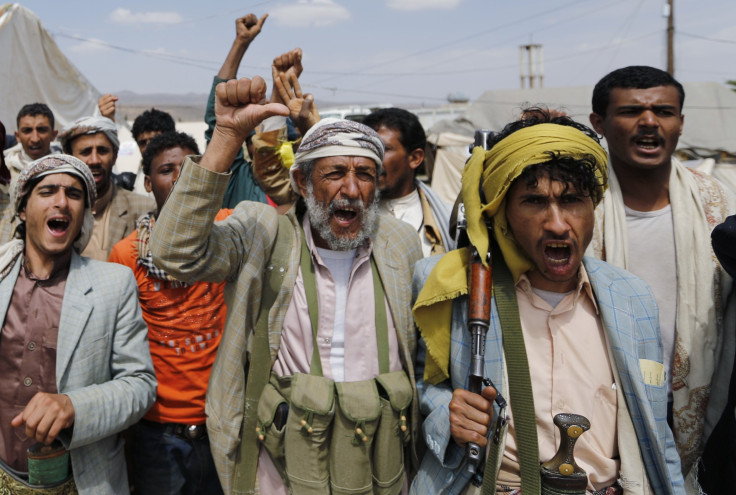Rising Al Qaeda In Yemen Calls Into Question US Strategy Against ISIS

As the U.S. and other Western governments ramp up efforts to form an international coalition to fight the Islamic State, another crisis is brewing in the Middle East: Al Qaeda in the Arabian Peninsula is trying to gain back both the influence and the territory it once held in the region, particularly in Yemen.
As Yemen falls deeper into political strife and warring militias fight for power, Al Qaeda has found an avenue into the capital itself. The Wall Street Journal reported Sunday more than 60 Al Qaeda fighters had made their way into Sanaa in the past several weeks, taking advantage of the country’s current state of chaos.
“Terrorists love power vacuums -- they gain traction there,” said Max Abrahms, a terrorism researcher and professor at Northeastern University.
For more than a decade the U.S. has fought al Qaeda in the Arabian Peninsula, both covertly and openly, in countries across the Middle East, but most prominently in Yemen. The offshoot of al Qaeda is one of the most destructive and effective groups operating under the main leadership.
In Yemen, the U.S. campaign included CIA drone strikes on al Qaeda targets, a model that is going to serve as the basis for the strategy behind taking out ISIS in Syria and Iraq, Obama said in a speech last week.
But the resurgence of al Qaeda in Yemen proves a strategy of attacks from the air and special forces raids does not necessarily work in eradicating a terrorist group entrenched in a territory.
The latest violence that threatens to plunge Yemen further into turmoil that would benefit al Qaeda happened earlier this month when authorities shot into a crowd of Shiite Muslim protesters. A Human Rights Watch report published Sunday said at least eight people were killed and 67 wounded on Sept. 7 and 9 when the Houthis, a Shiite resistance group, demonstrated in the capital. They were protesting the government of President Abd Rabbu Mansour Hadi, who took office in February 2012 after Ali Adbdallah Saleh was ousted by mass demonstrations.
The clashes in Sanaa came after months of fighting between the Houthis and the Yemeni military and other armed groups in the northern part of the country, which has created an opportunity for al Qaeda to gain ground, Abrahms said.
Obama said in his speech last week his counterterrorism strategy to fight ISIS would “be waged through a steady, relentless effort to take out ISIL [the administration's name for ISIS] wherever they exist, using our air power and our support for partner forces on the ground. This strategy of taking out terrorists who threaten us, while supporting partners on the front lines, is one that we have successfully pursued in Yemen and Somalia for years."
Yet al Qaeda is still present in Yemen and is growing. An al Qaeda affiliate group, Ansar al-Shariah, killed six soldiers in Yemen at the end of August, announcing on Twitter the deaths marked the start of a "widespread campaign" in the country. The attacks were among the deadliest and most coordinated in southern Yemen since the army launched a campaign, earlier this year, to rid Abyan and Shabwa provinces of al Qaeda in the Arabian Peninsula militants.
The threat is not limited to the region.
"Our nation faces a serious threat from these groups, particularly from those based in Yemen, home to al Qaeda in the Arabian Peninsula," then-CIA Director David Petraeus told Congress in 2011. "As al Qaeda’s core has been weakened, the initiative has been shifting somewhat to al Qaeda’s affiliates and sympathizers outside South Asia."
The threat may become worse now also because al Qaeda, including the faction in Yemen, may try to compete with ISIS, Abrahms said. "The rise of ISIS incentivizes al Qaeda affiliates to perform a massive attack," he said. "Violence is a good way to outbid rival organizations and recruits."
© Copyright IBTimes 2024. All rights reserved.





















